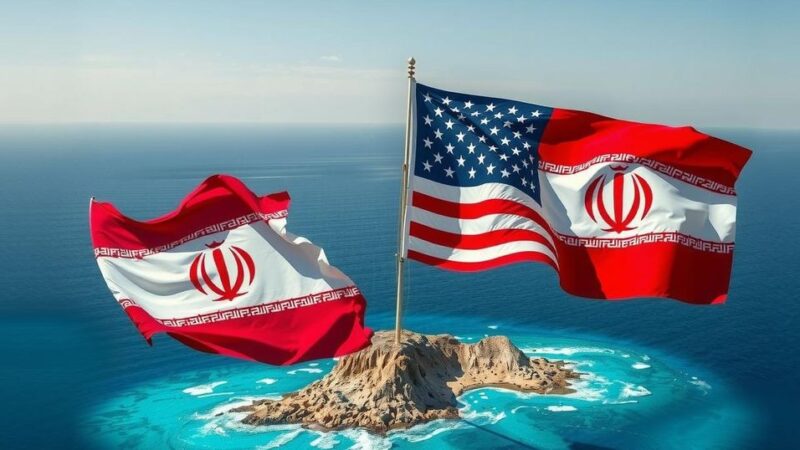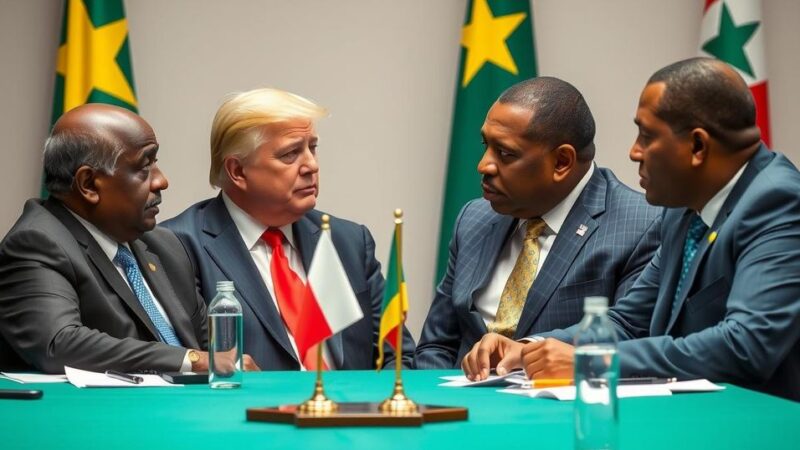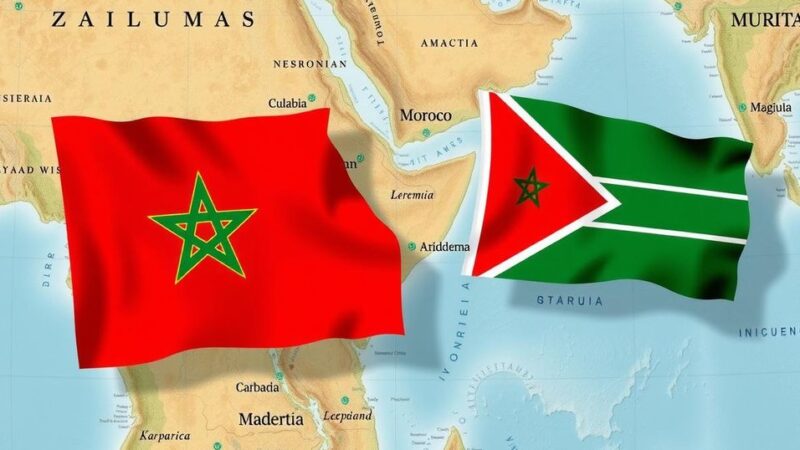Egypt’s President Abdel Fattah el-Sisi proposed a two-day cease-fire in Gaza to enable the exchange of Israeli hostages held by Hamas for Palestinian prisoners, coinciding with increasing violence in the region. The talks are part of broader negotiations influenced by the U.S., Qatar, and Egypt amidst a humanitarian crisis in Gaza, drawing attention to the need for a sustainable solution.
In a significant diplomatic effort, Egyptian President Abdel Fattah el-Sisi announced the proposal of an initial two-day cease-fire in Gaza aimed at facilitating the exchange of four Israeli hostages currently held by Hamas for Palestinian prisoners. This announcement was made during a press conference in Cairo, alongside Algerian President Abdelmadjid Tebboune, and follows a recent upsurge in violence, with Israeli military operations claiming the lives of at least 45 Palestinians in Gaza. President el-Sisi emphasized the necessity of resuming negotiations within 10 days following the temporary cessation of hostilities, with the objective of working towards a permanent resolution to the ongoing conflict. This proposal comes amidst renewed discussions in Qatar that include the intelligence agencies of the United States and Israel. As of now, neither Israel nor Hamas has provided a direct response to this proposal. However, a Palestinian official acquainted with the mediation stated, “I expect Hamas would listen to the new offers, but it remains determined that any agreement must end the war and get Israeli forces out of Gaza.” This stance reflects the broader perspective of Hamas and its demands concerning the conflict. Israel maintains its position that the military operations against Hamas must continue until the organization is eradicated as a governing body and military force in Gaza. The conflict, which erupted following armed assaults by Hamas on Israeli territory on October 7 of last year, has led to heavy casualties, with reports indicating that Gaza health officials estimate the death toll to be nearing 43,000 due to Israel’s retaliatory actions. Meanwhile, a Palestinian official involved in talks has conveyed that current negotiations focus on securing a short-term cease-fire and the release of hostages in exchange for Palestinian detainees. The humanitarian situation in Gaza remains dire, with recent events resulting in at least 43 Palestinian deaths, particularly in northern regions where Israeli military operations continue against perceived Hamas strongholds. UN Secretary-General António Guterres has voiced profound concern regarding the humanitarian crisis, labeling the conditions in northern Gaza as “unbearable” and criticizing the conflict for its disregard for international humanitarian law. Moreover, the Israeli military has initiated an inquiry into reports that an airstrike on a school in the Shati camp led to nine fatalities and numerous injuries, reiterating its claim that military actions adhere to international law guidelines by targeting Hamas operatives disguised among civilians.
The recent escalation of hostilities in Gaza has resulted in a humanitarian crisis, with extensive casualties reported on both sides since the beginning of the conflict after the Hamas incursion into Israel on October 7, 2022. Egypt, alongside the U.S. and Qatar, has been actively involved in mediating efforts to establish a ceasefire and facilitate negotiations for a lasting peace agreement. The international community, including UN officials, has expressed increasing concern over the humanitarian implications of the ongoing conflict, particularly within the Gaza Strip, where airstrikes and ground operations have devastated infrastructure and led to a significant loss of life. The proposed cease-fire and prisoner exchange signify a critical moment in these diplomatic efforts, reflecting the urgent need for a peaceful resolution.
In conclusion, Egypt’s proposal for a two-day cease-fire aims to create an opportunity for the exchange of hostages and prisoners amidst a backdrop of ongoing military aggression and humanitarian crisis in Gaza. While there are existing challenges and differing demands from the involved parties, the emphasis on resuming negotiations signals a potential step towards addressing the broader conflict and alleviating the dire circumstances faced by civilians in the region. Continuous international diplomatic efforts are essential in striving for a more permanent solution to the hostilities between Israel and Hamas.
Original Source: themedialine.org







